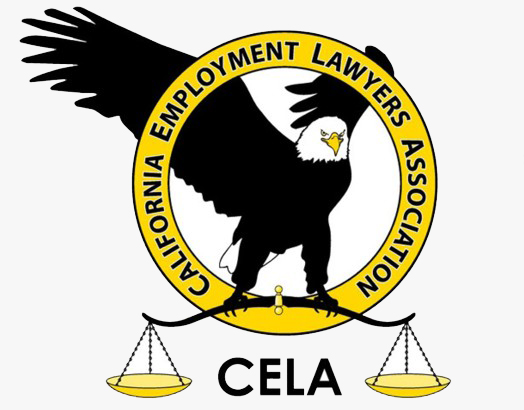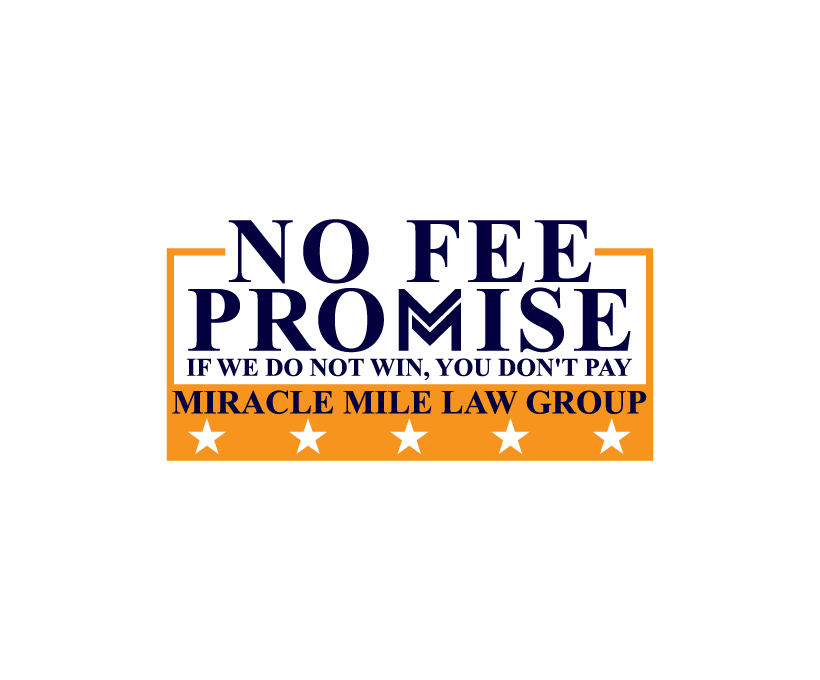Workplace Retaliation Lawyer in California
This is personal for us. We know the difference between right and wrong and have based our entire careers on reminding others of that distinction.
California Retaliation Lawyers
California law protects employees from retaliation when they assert their workplace rights. Retaliation occurs when an employer takes negative action against an employee for reporting discrimination, harassment, wage violations, safety issues, or other unlawful conduct. These actions can include termination, demotion, pay cuts, poor evaluations, or exclusion from workplace opportunities. At Miracle Mile Law Group, our attorneys focus exclusively on representing employees and understand how to identify, document, and prove retaliation under the Fair Employment and Housing Act (FEHA) and federal law.
Understanding workplace retaliation in California
Workplace retaliation occurs when an employer punishes an employee for engaging in a legally protected activity. California and federal laws strictly prohibit retaliation because it undermines employee rights and discourages workers from reporting unlawful behavior. Retaliation is one of the most common claims filed with the Equal Employment Opportunity Commission (EEOC) and California Civil Rights Department (CRD), making it critical for employees to understand their protections.
What counts as a protected activity?
Employees are protected from retaliation when they engage in specific activities, including:
- Reporting discrimination or harassment: Complaints about race, sex, age, disability, religion, pregnancy, or other protected categories.
- Filing or supporting claims: Participation in EEOC or CRD proceedings, testifying as a witness, or assisting a co-worker with a complaint.
- Whistleblowing: Reporting unsafe conditions, wage violations, or illegal conduct to management, government agencies, or law enforcement.
- Refusing illegal instructions: Declining to commit acts that would violate state or federal law.
- Exercising workplace rights: Taking family or medical leave, requesting disability or religious accommodations, or discussing wages under California law.
What is an adverse employment action?
To prove retaliation, an employee must show that the employer took an adverse action connected to the protected activity. Adverse actions include:
- Termination or demotion: Being fired, reassigned, or stripped of responsibilities.
- Pay and benefits changes: Reduced wages, loss of benefits, or withheld bonuses.
- Negative evaluations: Unwarranted poor performance reviews or disciplinary write-ups.
- Harsh scheduling or transfers: Punitive changes to shifts, work location, or hours.
- Exclusion or hostility: Removal from meetings, isolation from co-workers, or verbal/physical abuse.
Industries where retaliation is common
Retaliation can happen in any workplace, but certain industries see it more frequently. These include construction, hospitality, food service, healthcare, retail, and domestic work, where employees may have limited bargaining power or depend on customer satisfaction. In male-dominated fields, retaliation often arises after reports of harassment or discrimination. In service industries, retaliation may occur when employees push back against wage theft or unsafe working conditions.
How to respond if you suspect retaliation
If you believe you are experiencing retaliation, act quickly to preserve your rights. Steps include:
- Document everything: Save emails, texts, and written communications related to your complaint and the employer’s response.
- Keep a journal: Record dates, times, and details of retaliatory actions and who was involved.
- Submit complaints in writing: File internal reports with HR or management to create a record.
- Seek legal advice early: An employment attorney can evaluate your case, secure evidence, and file claims with the CRD or EEOC.
Why hire Miracle Mile Law Group
Our firm represents employees throughout California in retaliation cases. We handle the entire process: investigating the facts, filing administrative complaints, negotiating settlements, and litigating in court when necessary. Because retaliation cases often depend on circumstantial evidence, strategic presentation is key to proving the link between your protected activity and the employer’s adverse action.
Proven results in retaliation matters
- $1,900,000 – Whistleblower Retaliation: Client terminated after reporting fraudulent practices; substantial settlement secured after litigation.
- $683,000 – Retaliation: Employee punished after reporting sexual harassment and Labor Code violations.
- $500,000 – Retaliation: State employee terminated after filing protected complaints; recovery before trial.
- $415,000 – Whistleblower Retaliation: Employee fired after raising workplace safety violations; settlement achieved on the eve of trial.
- $300,000 – Whistleblower Retaliation: HR manager terminated after raising Equal Pay Act concerns; favorable settlement obtained.
If you believe you have been retaliated against at work, contact Miracle Mile Law Group for a free consultation. Our attorneys focus exclusively on employment law and will work to secure the maximum relief available under California and federal law.

Retaliation occurs when your boss treats you less favorably than other employees because of some action you took. Your employer may not retaliate against you for making a protected complaint or report. A a few examples of “protected activity” of which your employer cannot retaliate against you include:
- Because you reported instances of illegal conduct to OSHA, human resources, law enforcement, or other government authorities.
- Because you reported instances of sexual harassment. This stands true if you were harassed or if you reported that another co-worker being harassed.
- Because you were discriminated based on your age, gender, race, disability, sexual orientation, color, religion, or your pregnancy
- Because you refused to partake in illegal activities
In order to prove workplace retaliation, you must show that:
- You engaged in a protected activity
- Your employer took action against you
- A link between 1 and 2.
There are essentially two types of protected activity 1) opposition, and 2) participation.
Opposition
This means that you opposed some illegal act such as discrimination, harassment, or retaliation by your employer. Keep in mind, that the discrimination, harassment, or retaliation does not have to occur to you. For example, if you suffer an adverse employment action because you report that another co-worker is suffering, then you may have a claim.
Participation
Participation means you filed a charge with the Equal Employment Opportunity Commission (EEOC), the Department of Fair Employment and Housing (DFEH), a worker’s compensation, or any other formal judicial proceeding. You cannot be retaliated against for participating in any of these proceedings.
- In order to successfully sue for retaliation, you must show that your employer took some adverse employment action against you. An adverse employment action essentially means that your boss took some negative action towards. Some negative actions are easy to spot. This includes demotions, a termination, or a decrease in pay. However, an adverse action is not always so conspicuous. A list of adverse actions include:
- Termination
- Decrease in pay
- Demotion
- Changing the location of where you work
- Withholding benefits
- Receiving poor performance reviews as a result of some protected action you took
- Formal reprimands
- Reassignments that have no reason but to punish the employee
- Exclusion from work activity and decision-making
- Could shoulder treatment
- Verbal/physical abuse
- Being passed up for promotion
-
- Retaliation comes in many different forms and it could happen in a multitude of ways, sometimes even simultaneously. Over time there has been a trend of common examples of retaliatory measures by an employer. These actions include:
- Demoting you in pay, position, or job type
- “Coincidentally” subjecting you to new oversight, usually in the form of micromanaging
- Denying you training opportunities
- Denying you pay
- Denying you the opportunity to effectively carry out your job
- Passing you over repeatedly for promotions
- Giving you negative performance reviews
- Poor evaluations
- Subjecting you to poor working conditions (for example, making you clean feces when it was not part of your job description)
- Denying you the opportunity to join in on important business meeting
- Retaliation comes in many different forms and it could happen in a multitude of ways, sometimes even simultaneously. Over time there has been a trend of common examples of retaliatory measures by an employer. These actions include:
- Retaliation does not occur in one industry alone; however, certain trends show that some industries are more heavily affected than others. For example, male-dominated sectors such as construction, and other areas where women are not generally accepted, retaliation seems to be the highest. Also, in service-based industries, where tips and reviews are extremely important, retaliation seems to be ever-so-present as employers are eager to meet their customer’s demands. Lastly, in industries where women have low bargaining power, such as maids, retaliation is high. The trend seems to correlate with the fact that in areas of the economy where women and other lower-collar workers are isolated, retaliation is at its worst.
While you cannot prevent your employer from retaliating against you, there are some ways to help prove your case. This includes:
- Save all the correspondence, emails, texts, and messages between you and other people you work with
- Keep a work diary and notate every time you feel like you’re being retaliated
- Try to communicate with your supervisor in writing as much as possible
- Make a formal complaint in writing outlining why you feel you are being retaliated against and how it makes you feel
While this list is not complete, it can help when prove your retaliation case should you decide to hire an employment attorney.
Talk to a Los Angeles Retaliation Lawyer today. We offer free consultations and you pay nothing unless we win.
The lawyers at Miracle Mile Law Group are specially trained in handling retaliation lawsuits. If you believe you have been or currently retaliated against at work, contact a Los Angeles retaliation attorney today. Having a lawyer by your side when trying to prove that you have been retaliated against is essential. The lawyers here at Miracle Mile Law Group are trained at identifying what to look for when going up against your employer. These cases are very time sensitive so give us a call at (888) 244-0706 or contact us online for a FREE case evaluation. Remember, we do not take a single dollar unless WE WIN!




